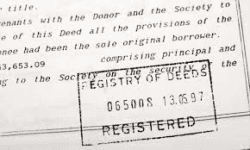The simple answer to this question is yes. Here we will look at what kind of trust this is, why you should create one and what are the consequences if you are a joint owner of a property or are contributing to the purchase either by providing a part or whole of the deposit, or paying a part of the mortgage repayments.
Case law has clearly demonstrated the many benefits associated with the joint owners of property declaring their beneficial interests. Clarity is provided as to the parties’ intentions by declaring interests at the outset of a transaction, pre-empting future disputes.
Legal advice on deeds of trust
It is important when purchasing a property to get the correct legal advice. You will find plenty of information online at resources such as Sam Conveyancing deed of trust information is available at these sites, together with details as to how such a legal instrument works.
Given that these instruments are legally binding, they can be enforced in court. A declaration of trust extends beyond the details of the title deed, which is lodged at the Land registry. This means it can be used to establish the true ownership of a property, and reveal the proportion that each signatory to the deed actually owns.
Often parents or friends may contribute to the purchase of a property, or joint owners may have made different initial contributions, or pay different percentages of the mortgage repayments. If there is no dispute about these, no issue arises.
However, in certain circumstances, such as a divorce, there may be conflicts. The existence of a trust deed means the court will have evidence upon which to base its decision if litigation takes place. All parties will want to avoid the cost of legal proceedings and a legal document which spells out contributions will help establish how fair shares are arrived at.
Why are deeds of trust a good idea?
The financial contributions towards the purchase of a property may not be clear-cut. One person may contribute more to the deposit or either party could pay more towards mortgage payments.
There are two ways in which parties may have joint ownership of a property under UK law, either as tenants in common or joint tenants. In either case, they can spell out in a deed how much they have contributed and how they wish any proceeds of sale to be distributed.
It is important to understand that the document is between the parties, and obligations to the mortgage provider will remain joint even if the shares in the ownership are not equal.
If family or friends have contributed to the purchase, it is likely they will expect to be reimbursed if the property is sold. The trust deed can be used to spell out what those payments will be. They are more likely to be comfortable helping with a purchase if they are secure in the knowledge that their investment will be repaid, possibly with a fixed interest payment.


